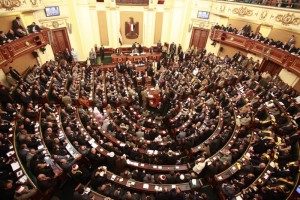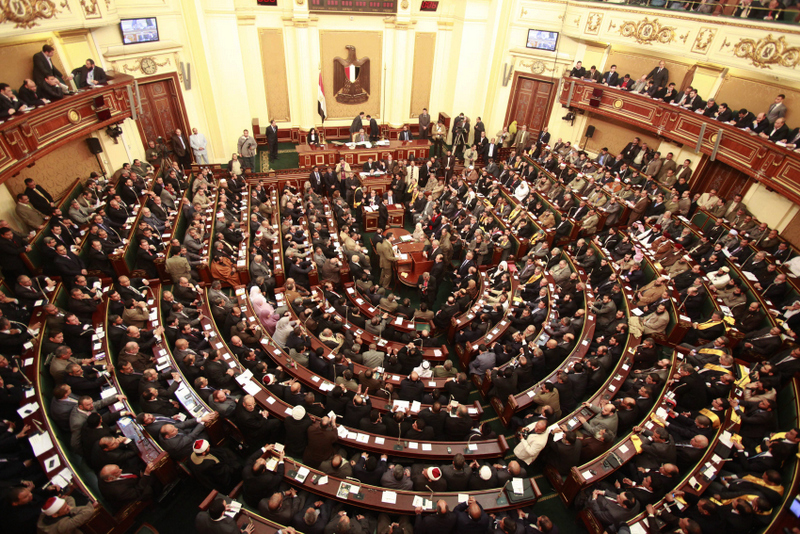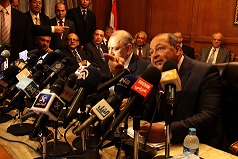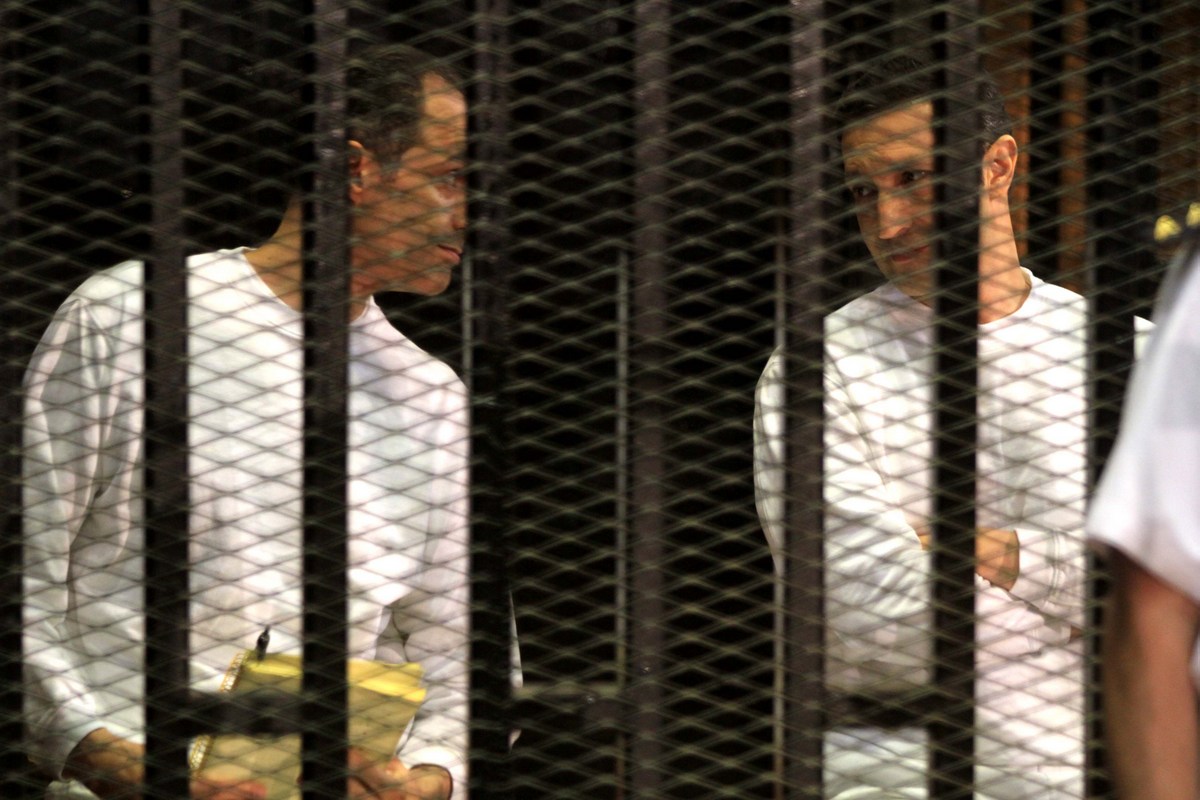
(AFP File Photo)
President Abdel Fattah Al-Sisi issued on Tuesday a presidential decree forming a Supreme Electoral Commission to oversee the upcoming parliamentary elections.
During a meeting with US Secretary of State John Kerry on 22 June, Al-Sisi announced that the process of the parliamentary elections will begin before 18 July.
The newly-formed committee will be presided over by the head of the Cairo Court of Appeals. Its members will include: the oldest two deputies for the head of the Cassation Court, the oldest two deputies for the State Council’s head, and the oldest two heads of appeals courts, other than the Cairo Court of Appeals. These judicial bodies should each appoint another back-up member.
Presidential Spokesman Ihab Badawi said the decree is based on proposals made by Justice Minister Mahfouz Saber, reported state-run news agency MENA. The decree was approved by the Supreme Judicial Council and the State Council before its issuance, Badawi added.
Article 230 of the newly issued constitution stipulates that should the presidential elections be held first, the parliamentary elections are to follow within six months.
In his last days in office, former Interim President Adly Mansour issued the Parliamentary Elections Law, drafted to govern the elections. The law stipulates legislature will be made up of 540 seats and an additional 5%, or up to 27 seats which will be filled by appointment by the president, totaling to 567.
Article 3 of the law states that 420 seats will be elected on an individual basis, while the remaining 120 will follow the party lists system.
The law was criticised by several political parties prior to its issuance. Parties stated that electing the majority of the members individually would deprive the “underprivileged” of their chance of winning the elections, given the high costs of running for the elections individually.
On Monday, the Cairo Urgent Matters Court of Appeals overturned a decision banning leaders of the now-dissolved National Democratic Party (NDP) from running in the parliamentary and local councils’ elections. Another Urgent Matters Court had earlier banned any Muslim Brotherhood member from running in any of the upcoming elections.



